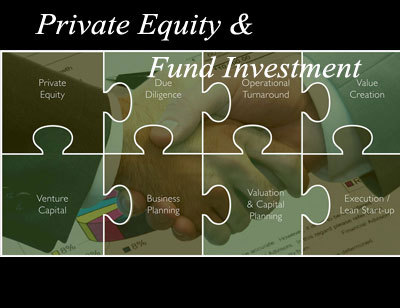#Private Equity Investment
Explore tagged Tumblr posts
Text
Transforming Healthcare in Malaysia: The Role of Top Private Equity Firms
Private equity investments in Malaysia's healthcare industry gained momentum in the early 2000s. These investments aim to modernize infrastructure, expand access, and integrate advanced technologies. Targeted healthcare companies often demonstrate robust growth potential, strong leadership, and a commitment to enhancing patient care.
Read More:
0 notes
Text
Learn how to access private equity investments easily, with insights into strategies, benefits, entry points, and trends shaping the private equity landscape. Private equity has a significant influence on financial markets, presenting investors with opportunities distinct from public equities.
0 notes
Text
Red Lobster was killed by private equity, not Endless Shrimp

For the rest of May, my bestselling solarpunk utopian novel THE LOST CAUSE (2023) is available as a $2.99, DRM-free ebook!

A decade ago, a hedge fund had an improbable viral comedy hit: a 294-page slide deck explaining why Olive Garden was going out of business, blaming the failure on too many breadsticks and insufficiently salted pasta-water:
https://www.sec.gov/Archives/edgar/data/940944/000092189514002031/ex991dfan14a06297125_091114.pdf
Everyone loved this story. As David Dayen wrote for Salon, it let readers "mock that silly chain restaurant they remember from their childhoods in the suburbs" and laugh at "the silly hedge fund that took the time to write the world’s worst review":
https://www.salon.com/2014/09/17/the_real_olive_garden_scandal_why_greedy_hedge_funders_suddenly_care_so_much_about_breadsticks/
But – as Dayen wrote at the time, the hedge fund that produced that slide deck, Starboard Value, was not motivated by dissatisfaction with bread-sticks. They were "activist investors" (finspeak for "rapacious assholes") with a giant stake in Darden Restaurants, Olive Garden's parent company. They wanted Darden to liquidate all of Olive Garden's real-estate holdings and declare a one-off dividend that would net investors a billion dollars, while literally yanking the floor out from beneath Olive Garden, converting it from owner to tenant, subject to rent-shocks and other nasty surprises.
They wanted to asset-strip the company, in other words ("asset strip" is what they call it in hedge-fund land; the mafia calls it a "bust-out," famous to anyone who watched the twenty-third episode of The Sopranos):
https://en.wikipedia.org/wiki/Bust_Out
Starboard didn't have enough money to force the sale, but they had recently engineered the CEO's ouster. The giant slide-deck making fun of Olive Garden's food was just a PR campaign to help it sell the bust-out by creating a narrative that they were being activists* to save this badly managed disaster of a restaurant chain.
*assholes
Starboard was bent on eviscerating Darden like a couple of entrail-maddened dogs in an elk carcass:
https://web.archive.org/web/20051220005944/http://alumni.media.mit.edu/~solan/dogsinelk/
They had forced Darden to sell off another of its holdings, Red Lobster, to a hedge-fund called Golden Gate Capital. Golden Gate flogged all of Red Lobster's real estate holdings for $2.1 billion the same day, then pissed it all away on dividends to its shareholders, including Starboard. The new landlords, a Real Estate Investment Trust, proceeded to charge so much for rent on those buildings Red Lobster just flogged that the company's net earnings immediately dropped by half.
Dayen ends his piece with these prophetic words:
Olive Garden and Red Lobster may not be destinations for hipster Internet journalists, and they have seen revenue declines amid stagnant middle-class wages and increased competition. But they are still profitable businesses. Thousands of Americans work there. Why should they be bled dry by predatory investors in the name of “shareholder value”? What of the value of worker productivity instead of the financial engineers?
Flash forward a decade. Today, Dayen is editor-in-chief of The American Prospect, one of the best sources of news about private equity looting in the world. Writing for the Prospect, Luke Goldstein picks up Dayen's story, ten years on:
https://prospect.org/economy/2024-05-22-raiding-red-lobster/
It's not pretty. Ten years of being bled out on rents and flipped from one hedge fund to another has killed Red Lobster. It just shuttered 50 restaurants and declared Chapter 11 bankruptcy. Ten years hasn't changed much; the same kind of snark that was deployed at the news of Olive Garden's imminent demise is now being hurled at Red Lobster.
Instead of dunking on free bread-sticks, Red Lobster's grave-dancers are jeering at "Endless Shrimp," a promotional deal that works exactly how it sounds like it would work. Endless Shrimp cost the chain $11m.
Which raises a question: why did Red Lobster make this money-losing offer? Are they just good-hearted slobs? Can't they do math?
Or, you know, was it another hedge-fund, bust-out scam?
Here's a hint. The supplier who provided Red Lobster with all that shrimp is Thai Union. Thai Union also owns Red Lobster. They bought the chain from Golden Gate Capital, last seen in 2014, holding a flash-sale on all of Red Lobster's buildings, pocketing billions, and cutting Red Lobster's earnings in half.
Red Lobster rose to success – 700 restaurants nationwide at its peak – by combining no-frills dining with powerful buying power, which it used to force discounts from seafood suppliers. In response, the seafood industry consolidated through a wave of mergers, turning into a cozy cartel that could resist the buyer power of Red Lobster and other major customers.
This was facilitated by conservation efforts that limited the total volume of biomass that fishers were allowed to extract, and allocated quotas to existing companies and individual fishermen. The costs of complying with this "catch management" system were high, punishingly so for small independents, bearably so for large conglomerates.
Competition from overseas fisheries drove consolidation further, as countries in the global south were blocked from implementing their own conservation efforts. US fisheries merged further, seeking economies of scale that would let them compete, largely by shafting fishermen and other suppliers. Today's Alaskan crab fishery is dominated by a four-company cartel; in the Pacific Northwest, most fish goes through a single intermediary, Pacific Seafood.
These dominant actors entered into illegal collusive arrangements with one another to rig their markets and further immiserate their suppliers, who filed antitrust suits accusing the companies of operating a monopsony (a market with a powerful buyer, akin to a monopoly, which is a market with a powerful seller):
https://www.classaction.org/news/pacific-seafood-under-fire-for-allegedly-fixing-prices-paid-to-dungeness-crabbers-in-pacific-northwest
Golden Gate bought Red Lobster in the midst of these fish wars, promising to right its ship. As Goldstein points out, that's the same promise they made when they bought Payless shoes, just before they destroyed the company and flogged it off to Alden Capital, the hedge fund that bought and destroyed dozens of America's most beloved newspapers:
https://pluralistic.net/2021/10/16/sociopathic-monsters/#all-the-news-thats-fit-to-print
Under Golden Gate's management, Red Lobster saw its staffing levels slashed, so diners endured longer wait times to be seated and served. Then, in 2020, they sold the company to Thai Union, the company's largest supplier (a transaction Goldstein likens to a Walmart buyout of Procter and Gamble).
Thai Union continued to bleed Red Lobster, imposing more cuts and loading it up with more debts financed by yet another private equity giant, Fortress Investment Group. That brings us to today, with Thai Union having moved a gigantic amount of its own product through a failing, debt-loaded subsidiary, even as it lobbies for deregulation of American fisheries, which would let it and its lobbying partners drain American waters of the last of its depleted fish stocks.
Dayen's 2020 must-read book Monopolized describes the way that monopolies proliferate, using the US health care industry as a case-study:
https://pluralistic.net/2021/01/29/fractal-bullshit/#dayenu
After deregulation allowed the pharma sector to consolidate, it acquired pricing power of hospitals, who found themselves gouged to the edge of bankruptcy on drug prices. Hospitals then merged into regional monopolies, which allowed them to resist pharma pricing power – and gouge health insurance companies, who saw the price of routine care explode. So the insurance companies gobbled each other up, too, leaving most of us with two or fewer choices for health insurance – even as insurance prices skyrocketed, and our benefits shrank.
Today, Americans pay more for worse healthcare, which is delivered by health workers who get paid less and work under worse conditions. That's because, lacking a regulator to consolidate patients' interests, and strong unions to consolidate workers' interests, patients and workers are easy pickings for those consolidated links in the health supply-chain.
That's a pretty good model for understanding what's happened to Red Lobster: monopoly power and monopsony power begat more monopolies and monoposonies in the supply chain. Everything that hasn't consolidated is defenseless: diners, restaurant workers, fishermen, and the environment. We're all fucked.
Decent, no-frills family restaurant are good. Great, even. I'm not the world's greatest fan of chain restaurants, but I'm also comfortably middle-class and not struggling to afford to give my family a nice night out at a place with good food, friendly staff and reasonable prices. These places are easy pickings for looters because the people who patronize them have little power in our society – and because those of us with more power are easily tricked into sneering at these places' failures as a kind of comeuppance that's all that's due to tacky joints that serve the working class.

If you'd like an essay-formatted version of this post to read or share, here's a link to it on pluralistic.net, my surveillance-free, ad-free, tracker-free blog:
https://pluralistic.net/2024/05/23/spineless/#invertebrates
#pluralistic#bust-outs#private equity#pe#red lobster#olive garden#endless shrimp#class warfare#debt#looters#thai union group#enshittification#golden gate#monopsony#darden#alden global capital#Fortress Investment Group#food#david dayen#luke goldstein
6K notes
·
View notes
Text

Empower your Financial Journey with Private Equity Investment - Arohana Legal
Arohana Legal: Empowering Your Financial Journey with Cutting-Edge Fintech Solutions. Unlock the potential of your business with our innovative tools and services. Stay ahead in the competitive financial landscape with Arohana Legal as your trusted partner. Discover how we can transform your financial future today : https://arohanalegal.com/practice-area/fintech-solutions/
0 notes
Text

Discover the power of private equity investment as a catalyst for business expansion and innovation. Learn how this strategic financial approach fuels success. If you want more information for my service related, then you can contact YC Chen +86 755 8983 0009 and get more information.
1 note
·
View note
Text
#Private Equity Opportunities#Private Equity Investment Opportunities#Private Equity Investment#Equity Investment Opportunities
0 notes
Text
Unlocking Value Creation: How Private Equity Firms Benefit from Strategic Outsourcing

Private equity firms prefer efficiency. That is why they adopt strategic outsourcing. Doing so ensures that private equity (PE) professionals have an advantageous position vital to unlocking value creation. In PE strategies, that value creation must encompass all portfolio companies. This post will explain how private equity firms benefit from strategic outsourcing.
The improvement of operational efficiency translates to better profitability, and professional PE strategists recognize this. After all, similar enhancements boost the companies’ growth potential, making them attractive investments to future buyers.
The Need for Private Equity Outsourcing
PE firms can benefit from additional leverage and outsiders’ specialized expertise in investment research services. They can, for instance, successfully decrease costs while fostering more core competencies. Therefore, it is no wonder that faster business transformations powered by strategic outsourcing are popular. Eventually, portfolio firms will yield higher returns on investments, allowing for better exit options.
How Can Strategic Outsourcing Benefit Private Equity Value Creation?
1. Cost Efficiency and Operational Improvements
One immediate advantage of embracing strategic outsourcing in PE activities is cost reduction. It not only saves tremendous expenses but also facilitates economies of scale. As a result, the efficiency of the processes skyrocketed.
PE firms and strategists have been dealing with standardization challenges. However, professional private equity support teams sport some of the latest in tools and technology to address them. Similar to how an IT enterprise outsources operations to independent specialists, many cost overheads will undergo distribution between the private equity firms and their external associates.
The sharing of liabilities may involve maintenance, tech upgrades, and cybersecurity considerations. That also entails more effective resource allocation to protect the interests of clients and support providers.
Outsourcing further allows PE firms to initiate operational improvements rapidly. In this way, PE firms can leverage the expertise of third-party providers to acquire best practices or access the latest technology.
2. Focus on Core Competencies
In an industry with high competition, focusing on core competencies is critical for portfolio companies. Otherwise, they will struggle to grow and differentiate themselves. Strategic outsourcing gives a private equity company the ability to transfer some of the auxiliary tasks to others. Doing so helps secure more management bandwidth, which will be necessary to concentrate on integral business activities that deliver robust growth.
This approach allows leadership teams to focus more time and effort on innovation. They can also enrich customer engagement and strategic initiatives by focusing more on process and vision alignment. Consequently, private equity firms will witness a faster business expansion trajectory.
More agile business operations to become a stronger market player will further PE firms’ objectives, like seamlessly securing the most attractive acquisition deals.
3. Quicker Workflow Transformations and Growth Initiatives
PE firms want to take portfolio companies, focus on value creation, and exit the investments at better returns. In other words, rapid growth acceleration allows private equity firms to exit earlier or ensure better gains. Strategic outsourcing allows scaling capabilities and speeds up the changes, operational or structural, for agility.
Therefore, if the firm wants to enter new geographies or experiment with alternative trade channels, PE outsourcing service providers could help. They will optimize the capital needed to conduct deal operations while supply chain and leadership evaluation become straightforward.
Conclusion
Modern private equity firms use strategic outsourcing as the most effective pathway for value creation across their portfolios. They have acknowledged that outsourcing can help reduce costs, create operational efficiency, and prioritize core practices.
Besides, screening companies, entering deals, and exiting the market becomes easier as the related sharing of liabilities accelerates growth and resell strategy implementations. Given the hurdles in finding the best talent to plan, lead, and execute private equity transactions, the worth of strategic outsourcing can only be appreciated.
2 notes
·
View notes
Text
I actually want to sit down and do the math on just how much money stewy made on the gojo deal, like it has to be insane?
update: stewy bought four billion dollars worth of waystar stock at ~ 129 a share in lifeboats (about 31 million shares); in the finale, matsson buys the company out for 192 per share, leaving stewy with a whole $5,953,488,372.09, so he made about two billion on that deal. which isn't half bad considering kendall, shiv, and roman combined were going to make ten billion.
extra update: I hate that this made its way to twitter when I was so wrong 😭 kendall says in the munsters that they would make three billion on the gojo sale, not ten; they were going to partner up to get the rest of the money to buy pierce. so! knowing that! I was able to do more math. if they were going to make three billion at 144 a share, the final sale at 192 gave them four billion dollars even, or about 1.3 each.
stewy hosseini, you officially made more money than kendall roy. what a guy.
#i don't know how private equity works so i don't know how much of that stewy himself makes#he made a silly investment high on cocaine in a cafe bathroom and walked out of it with two billion dollars#succession#stewy hosseini
22 notes
·
View notes
Text
Fernando Aguirre 4 Essential Tips to Equity Securities
In the world of finance, mastering equity securities is crucial for investors seeking to build a robust portfolio. Renowned investor Fernando Aguirre Executive Vice Chairman at DHS Ventures, shares 4 indispensable tips to navigate the complexities of equity investments.
2 notes
·
View notes
Text


















Equi Corp Legal has the best lawyers in Delhi NCR
#Corporate Disputes Litigation Lawyers in Delhi#Insolvency Bankruptcy NCLT Lawyers in Delhi#Private Equity Funds Investment Transaction Advisory M&A Lawyers in Delhi#Technology E-Commerce Fintech Blockchain Lawyers in Delhi#Regulatory Compliance Legal Audits in Delhi Noida#Director Investor Shareholder Dispute Litigation Lawyers in Delhi#Sports Gaming lawyers in Delhi#Startup Investor Lawyers in Delhi#Banking NBFC Financial Services DRT Debt Restructuring Lawyers in Delhi#Corporate lawyers in Delhi#Arbitration Lawyers in Delhi#Consumer Protection Lawyers in Delhi#Commercial Civil Disputes Litigation Lawyers in Delhi
10 notes
·
View notes
Text
1 note
·
View note
Text
Maximizing Potential: The Power of Private Equity Investment
Private equity investment plays a pivotal role in shaping industries, fostering innovation, and fueling growth in emerging and established markets. At Quadria Capital, we specialize in leveraging private equity to drive impactful transformations, particularly in the healthcare and related sectors across Asia. Private equity investment delivers benefits not only to businesses but also to economies and communities.Explore the possibilities of private equity investment with Quadria Capital. Together, let’s build a future of growth, sustainability, and impact.
0 notes
Text
Coller Capital expands Asia Pacific reach with Singapore office launch, brings in Partners Group’s Wu
Secondaries investment major Coller Capital has expanded to Singapore with the opening of its fifth office in the Asia Pacific region. To read more click here https://www.altassets.net/private-equity-news/by-region/asia-by-region/singapore-asia-by-region-by-region/coller-capital-expands-asia-pacific-reach-with-singapore-office-launch-brings-in-partners-groups-wu.html.
0 notes
Text
Access private and public company data, PE, VC, M&A, ECM, debt transactions and advanced tools on VCCEdge for India's investment ecosystem.
#private equity research#venture capital data#mergers and acquisitions#financial analysis#company profiles#investment insights#sector intelligence#market research#due diligence#deal pipeline
1 note
·
View note
Text
Healthcare Business Acquisition and Emerging Small Private Equity in 2025
The healthcare industry is no stranger to change, but 2025 is shaping up to be a pivotal year. Business acquisitions are accelerating, driven by demand for innovation, efficiency, and improved care. At the same time, smaller private equity firms are stepping into the spotlight, targeting overlooked opportunities. Together, these trends are reshaping healthcare to better meet evolving patient needs.
The Landscape of Healthcare Business Acquisitions in 2025
The business of healthcare mergers and acquisitions (M&A) is evolving rapidly. Rising costs, shifting regulations, and new technologies are pressuring providers, payers, and even manufacturers to consolidate. Larger organizations are looking to expand their footprints, while smaller firms seek partnerships to survive. Shortages of skilled workers and increasing care demands are only amplifying this activity.
Key Drivers of Healthcare Mergers and Acquisitions
So, what’s behind this surge? Several forces, each playing a critical role:
Aging Populations: The rise in elderly patients means increased demand for long-term care, specialty services, and chronic disease management.
Technological Integration: From telemedicine to AI in diagnostics, the need to implement advanced tools is pushing both smaller providers and large systems to align.
Regulatory Changes: Government policies on pricing, data security, and operational standards are persuading firms to band together for compliance and cost management.
New Care Models: Patient-first approaches like value-based care reward outcomes instead of services provided. Smaller providers often need partnerships to succeed under these models.
Most Active Sectors in Healthcare M&A
Some segments are buzzing more than others. The following stand out for their acquisition momentum:
Outpatient Services: Larger systems are snapping up smaller clinics to meet demand for convenient, affordable care.
Diagnostic Labs: With diagnostics central to modern medicine, labs are consolidating to improve costs and speed.
Telemedicine: Virtual care boomed during the pandemic, and demand hasn’t slowed. Investors see telehealth as a long-term growth opportunity.
Pharmaceutical Manufacturing: Small-scale companies with innovative approaches are being acquired by larger firms looking to diversify drug development.
Challenges in Healthcare Business Acquisitions
While M&A activity is booming, it’s not without hurdles.
Regulatory Compliance: Navigating antitrust laws and healthcare-specific regulations can delay or even block deals.
Valuation Difficulty: Assessing the true value of a healthcare business is tricky due to changing reimbursement models and operational risks.
Cultural Integration: Merging healthcare entities goes beyond numbers. Misaligned cultures or priorities can tank even the most promising deal.
The Rise of Small Private Equity in Healthcare
Historically, big firms dominated private equity activity in healthcare. But today, smaller firms are carving out a niche. Their focus? Specialized markets that large-scale investors often overlook.
Why Small Private Equity is Targeting Healthcare
Smaller private equity firms see healthcare as a smart, low-risk investment for three reasons:
Steady Demand: Healthcare is a necessity, making it more stable during economic downturns.
Room for Growth: Niche areas such as rural clinics or specialty services offer untapped revenue potential.
Profit Opportunity: Improving inefficient operations in underperforming healthcare businesses can yield high returns.
Strategies Employed by Emerging Private Equity Firms
These firms aren’t simply throwing money at the problem. They approach healthcare with precise strategies:
Acquiring Underperforming Assets: By focusing on struggling businesses, smaller firms can apply operational know-how to turn them around.
Investing in Regional Players: Local providers often have loyal patient bases but lack resources to grow; private equity can bridge that gap.
Streamlining Operations: Optimizing labor, technology, and patient care processes makes the businesses more profitable and sustainable.
Impact of Small Private Equity on Healthcare Operations
The influence of small private equity on healthcare is significant. Firms introduce better cost management methods, updated technology, and stronger operational practices. However, critics argue that cost-cutting could reduce care quality, so balancing profit and patient outcomes remains a key challenge.
Future Projections for Healthcare Acquisitions and Private Equity in 2025
As the year unfolds, a mix of new opportunities and risks will define healthcare M&A and private equity movements.
Emerging Opportunities in 2025
Several areas are expected to gain traction this year:
Digital Health: Startups building apps, virtual platforms, and AI-powered tools are prime candidates for acquisition or funding.
Personalized Medicine: From genomics to tailored treatment plans, the shift from one-size-fits-all care models is creating demand for innovation.
AI-Driven Solutions: Artificial intelligence is revolutionizing diagnosis, workflow automation, and patient engagement, making it attractive to investors.
Potential Risks and Mitigation Strategies
Of course, no growth comes without risk. Here's what stakeholders need to watch out for:
Economic Instability: In a shaky economy, acquisition funding could dry up. Firms should secure diverse funding sources.
Regulatory Challenges: Keeping solutions compliant with evolving rules requires agility. Staying informed is critical.
Cultural Conflicts: Integration troubles remain a top reason mergers fail. Clear communication and shared goals can help mitigate this.
Conclusion
Healthcare acquisitions and small private equity are reshaping the industry in 2025. With steady demand and new opportunities in digital health, telemedicine, and AI, growth potential is immense. That said, challenges like regulatory compliance and cultural alignment demand careful planning. For stakeholders, success lies in balancing profitability with delivering exceptional patient care. How the game plays out remains to be seen, but one thing is clear: there’s no slowing down in healthcare M&A.
0 notes
Text
Unlocking the Power of Secondary Investment in Private Equity

In the ever-evolving world of private equity, secondary investments have emerged as a game-changer for investors seeking enhanced liquidity, reduced risk, and more flexible opportunities. Secondary private equity involves the buying and selling of existing private equity investments, which presents a unique set of benefits and challenges.
What is Secondary Investment in Private Equity? Secondary investments in private equity provide investors the opportunity to buy stakes in established funds or direct investments, rather than participating in new fundraising rounds. Essentially, secondary investments offer a chance to acquire a piece of a portfolio that is already in motion, allowing for a potentially lower-risk investment with known performance metrics. These transactions occur in the secondary market, where investors can sell their stakes in a private equity fund or portfolio company.
The Benefits of Secondary Investments Secondary investments offer several advantages that can make them appealing to institutional and accredited investors, especially those associated with firms like Headwall Private Markets. Here’s why secondary investments are considered a strategic addition to any portfolio:
Liquidity Enhancement: One of the key challenges with traditional private equity investments is the long investment horizon, often spanning 7-10 years. Secondary private equity allows investors to exit or gain liquidity before the fund reaches its maturity, enabling a more flexible cash flow management strategy. This liquidity advantage is especially crucial for institutional investors who may need to rebalance their portfolios quickly.
Risk Mitigation: Secondary investments provide access to mature portfolios with a clearer understanding of performance. Since the investments are already in progress, investors can evaluate the historical performance of the fund or asset. This transparency reduces the uncertainty typically associated with investing in early-stage private equity, where the outcome can be highly speculative.
Discounted Entry: In secondary private equity, stakes can often be purchased at a discount compared to their net asset value (NAV). This is particularly true in times of market volatility or when an investor is looking to exit before a fund reaches its maturity date. The potential to acquire assets at a discount provides an immediate upside for secondary investors, increasing their chances of higher returns.
Diversification Opportunities: By entering into established funds or direct investments, secondary investors gain instant diversification across industries and geographies. This diversification can help mitigate the risks associated with concentrated exposure to a single fund or asset class.
Accelerated Time to Value: Secondary investments often involve assets that are closer to their exit phase. As such, secondary investors may see quicker returns compared to those involved in primary investments, where funds are in the earlier stages of their life cycle. This accelerated time to value makes secondary investments highly attractive for those seeking faster returns.
Challenges of Secondary Investments While secondary private equity has its benefits, it also carries certain challenges that investors need to consider:
Valuation Complexity: Determining the fair market value of secondary private equity investments can be difficult. These investments often involve illiquid, non-public assets, which makes it hard to accurately gauge their value. While secondary market transactions can provide some transparency, the valuation process can still be subjective, requiring expert insight.
Limited Availability of Attractive Deals: The supply of secondary private equity deals is not always consistent. High-quality secondary market opportunities can be rare, especially in specific sectors or asset classes. Investors may find themselves competing for limited opportunities, potentially driving up the price and reducing the expected returns.
Capital Deployment Speed: For those investors looking to deploy capital quickly, secondary markets may not always align with their timeframes. Given that these transactions often require due diligence and negotiation, the process of securing secondary investments may take longer than anticipated.
The Role of Headwall Private Markets As a leading player in the investment space, Headwall Private Markets plays a vital role in facilitating access to secondary private equity opportunities. With a reputation for in-depth market knowledge, strong industry connections, and a focus on delivering high-quality investment options, Headwall Private Markets can help investors navigate the complexities of secondary private equity. Through its platform, investors gain access to curated investment opportunities, backed by detailed research and thorough due diligence.
Headwall’s extensive expertise in identifying undervalued secondary market deals can enable investors to capitalize on exclusive opportunities that align with their financial goals. Whether you’re an institutional investor looking to diversify or an individual seeking high-value deals, Headwall Private Markets provides the strategic insight needed to make informed decisions in the secondary private equity market.
Conclusion: Is Secondary Investment Right for You? For seasoned investors seeking to reduce risk, improve liquidity, and diversify their portfolios, secondary investment in private equity represents a compelling opportunity. However, like all investment strategies, it comes with its own set of risks and requires thorough research, strategic planning, and a deep understanding of the market. By partnering with experts like Headwall Private Markets, investors can unlock the true potential of secondary investments while benefiting from valuable market insights and a strong track record of success. Incorporating secondary private equity into your investment strategy may be the key to achieving more balanced, resilient, and high-performing portfolios that can withstand the ever-changing dynamics of the financial markets.
#investments#investors#finance#liquidity provider#secondary investment#secondary investment services#secondary investment in private equity
0 notes